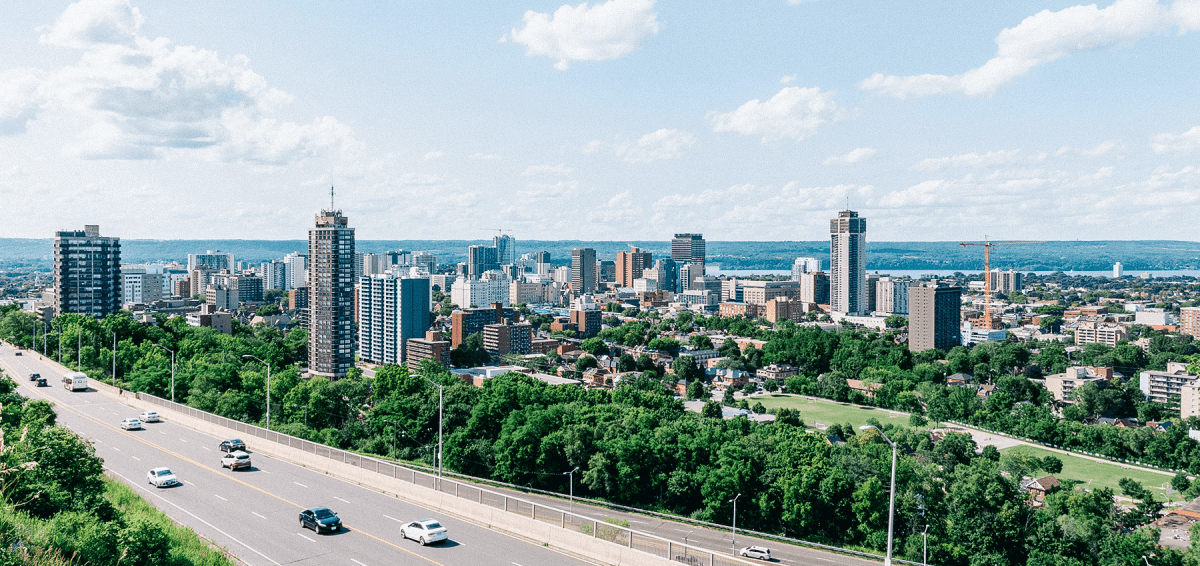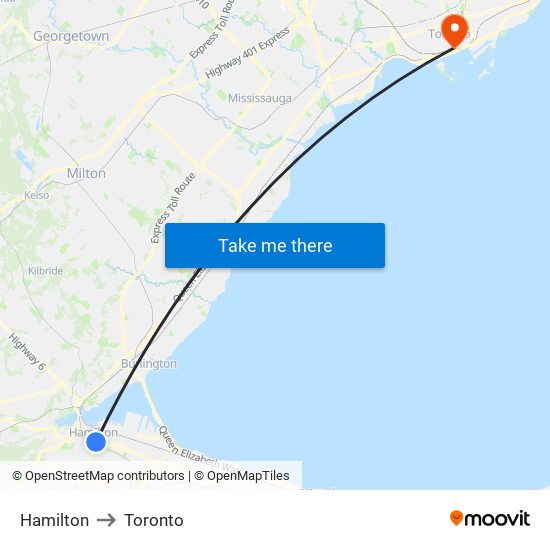Moving From Hamilton To Toronto
Making the move from Hamilton to Toronto can be a thrilling yet daunting experience. As two of Ontario's most vibrant cities, both Hamilton and Toronto offer a unique blend of culture, entertainment, and opportunity. However, Toronto's vast size, diverse neighborhoods, and fast-paced lifestyle can be overwhelming for even the most seasoned urban dweller. For those considering making the move, it's essential to weigh the pros and cons, research the best neighborhoods, and prepare for the changes that come with leaving Hamilton behind. In this article, we'll explore the ins and outs of relocating to Toronto from Hamilton.

Smooth Transition: A Guide to Moving from Hamilton to Toronto
Moving from Hamilton to Toronto can be a significant change, but with proper planning and preparation, it can be a smooth and exciting transition. Here are some key factors to consider when making the move:
Job Opportunities and Career Growth
Toronto is a hub for many industries, including finance, technology, and healthcare, offering a wide range of job opportunities. If you're moving for career growth, research companies in your field and network with professionals in your industry. Toronto's diverse economy and strong job market make it an attractive destination for career advancement.
Cost of Living and Housing
The cost of living in Toronto is higher compared to Hamilton, especially when it comes to housing. Be prepared for higher rent, mortgage payments, and living expenses. However, Toronto's average salary is also higher, which can help offset the increased cost of living. Research different neighborhoods and find a place that fits your budget and lifestyle.
Transportation and Commuting
Toronto has a comprehensive public transportation system, including the TTC (Toronto Transit Commission) and GO Transit. If you're moving from Hamilton, you may already be familiar with the GO Transit system, which connects the two cities. However, be prepared for heavier traffic and longer commute times in Toronto.
Neighborhoods and Lifestyle
Toronto has over 140 neighborhoods to choose from, each with its unique character and lifestyle. From the trendy streets of Ossington Avenue to the family-friendly atmosphere of the Beaches, there's a neighborhood to suit every style. Research different areas and find a community that fits your lifestyle and preferences.
Healthcare and Education
Toronto has some of the best healthcare facilities in the country, including world-renowned hospitals and medical research centers. The city is also home to top-ranked universities and colleges, including the University of Toronto and Ryerson University. If you have children, research schools in your desired neighborhood to ensure they receive a quality education.
| Category | Hamilton | Toronto |
|---|---|---|
| Cost of Living | Lower | Higher |
| Job Opportunities | Fewer | More |
| Commuting Time | Shorter | Longer |
| Neighborhood Options | Fewer | More |
Is it cheaper to live in Hamilton or Toronto?

Cost of Living Comparison
When it comes to deciding between living in Hamilton and Toronto, one of the most significant factors to consider is the cost of living. Both cities have their pros and cons, but which one is ultimately cheaper?
Housing Costs
One of the most significant expenses for anyone is housing. In Hamilton, the average rent for a one-bedroom apartment is around $1,300 per month, while in Toronto, it's around $2,000 per month. If you're looking to buy a house, the average price in Hamilton is around $540,000, compared to $1 million in Toronto.
Housing Options in Hamilton
Hamilton offers a range of housing options, including:
- Affordable apartments in the downtown area, with prices starting from $1,000 per month
- Condominiums in the north end, with prices starting from $300,000
- Detached houses in the suburbs, with prices starting from $400,000
Housing Options in Toronto
Toronto, on the other hand, offers:
- Luxury apartments in the downtown core, with prices starting from $2,500 per month
- High-rise condominiums in the entertainment district, with prices starting from $600,000
- Semi-detached houses in the suburbs, with prices starting from $800,000
Other Living Expenses
In addition to housing costs, other living expenses such as food, transportation, and utilities should also be considered. Hamilton has a lower overall cost of living, with:
- Lower grocery prices, with the average cost of a basket of groceries being 10% lower than in Toronto
- Cheaper transportation options, with a monthly public transit pass costing $95 in Hamilton compared to $156 in Toronto
- Lower utility bills, with the average cost of electricity, water, and gas being 15% lower in Hamilton
Is Hamilton Toronto a good place to live?

Hamilton is a city located in the province of Ontario, Canada, and it is not part of Toronto. However, it is often considered part of the Greater Toronto Area (GTA) due to its proximity to Toronto and its economic ties to the city. So, is Hamilton a good place to live?
Pros of Living in Hamilton
Hamilton has several advantages that make it an attractive place to live. Here are some of the pros:
- Affordable cost of living: Compared to Toronto, Hamilton has a lower cost of living, making it an attractive option for those who want to own a home or start a business.
- Rich cultural scene: Hamilton has a thriving arts and cultural scene, with numerous galleries, museums, and performance venues.
- Natural beauty: Hamilton is surrounded by natural beauty, with the Niagara Escarpment and Lake Ontario providing opportunities for outdoor recreation.
Cons of Living in Hamilton
Like any city, Hamilton has its drawbacks. Here are some of the cons:
- Industrial past: Hamilton's industrial past has left a legacy of pollution and environmental degradation, which can affect air and water quality.
- Traffic and congestion: Hamilton's roads can be congested, especially during rush hour, and parking can be a challenge in the downtown area.
- Crime rates: Some areas of Hamilton have higher crime rates compared to other cities in Ontario.
Neighborhoods to Consider in Hamilton
Hamilton has several neighborhoods that are popular with residents and offer a range of amenities. Here are a few to consider:
- Downtown Hamilton: The downtown area is undergoing revitalization and offers a mix of old and new buildings, with a vibrant arts and cultural scene.
- Kirkendall: This neighborhood is known for its historic homes, trendy restaurants, and boutique shops.
- Burlington: Located just north of Hamilton, Burlington offers a more suburban lifestyle with access to parks and trails.
Can you live in Hamilton and work in Toronto?

Living in Hamilton and working in Toronto is a feasible option for many individuals. The two cities are approximately 70 kilometers apart, making it a manageable commute. Here are some factors to consider:
Commuting Options
There are several commuting options available, including:
- GO Transit: The GO Train and Bus network connect Hamilton to Toronto, with multiple departures throughout the day. The journey takes around 45-60 minutes.
- Driving: The drive from Hamilton to Toronto typically takes around 45-60 minutes depending on traffic. There are several parking options available in Toronto, including public parking lots and street parking.
- Carpooling and Ride-sharing: Carpooling and ride-sharing services like Waze Carpool, Carpool Buddy, and UberPool are also popular options.
Cost of Living and Housing
One of the significant advantages of living in Hamilton and working in Toronto is the cost of living. Hamilton has a lower cost of living compared to Toronto, which means you can enjoy a more affordable lifestyle. Here are some key differences:
- Housing costs: The average house price in Hamilton is around $500,000, whereas in Toronto, it's over $1 million.
- Rentals: The average rent for a one-bedroom apartment in Hamilton is around $1,200, whereas in Toronto, it's over $2,000.
- Taxes: Hamilton has lower property taxes compared to Toronto.
Lifestyle and Balance
Living in Hamilton and working in Toronto can provide a better work-life balance. Here's why:
- Lower stress levels: Hamilton is known for its slower pace of life, which can help reduce stress levels.
- Outdoor activities: Hamilton has plenty of outdoor spaces, including the Bruce Trail and the Niagara Escarpment, perfect for hiking and outdoor activities.
- Community events: Hamilton has a thriving arts and culture scene, with numerous community events and festivals throughout the year.
How much does it cost to get to Toronto from Hamilton?

The cost of getting to Toronto from Hamilton depends on the mode of transportation you choose. Here are some approximate costs:
By Car
Driving from Hamilton to Toronto takes around 45 minutes to an hour depending on traffic. The tolls on the Queen Elizabeth Way (QEW) cost around $10-$15 CAD. However, you'll also need to consider the cost of fuel, which can range from $10-$20 CAD depending on your vehicle's fuel efficiency. Additionally, you'll need to pay for parking in Toronto, which can cost around $20-$30 CAD per day.
Tolls: $10-$15 CAD
Fuel: $10-$20 CAD
Parking: $20-$30 CAD per day
By Public Transit
Taking the bus or train from Hamilton to Toronto is a more affordable option. The GO Transit bus fare from Hamilton to Toronto's Union Station is around $10-$15 CAD one way. The train fare is slightly higher, around $15-$25 CAD one way. You can also buy a Presto card, which offers discounted fares.
GO Transit bus fare: $10-$15 CAD one way
GO Transit train fare: $15-$25 CAD one way
Presto card discounts: varies depending on usage
By Taxi or Ride-hailing
Taking a taxi or using a ride-hailing service like Uber or Lyft from Hamilton to Toronto can be more expensive. The cost can range from $60-$100 CAD or more, depending on traffic and the type of vehicle you choose.
Taxi fare: $60-$100 CAD or more
Uber/Lyft fare: $60-$100 CAD or more, depending on traffic and vehicle type
FAQ
What are the benefits of moving from Hamilton to Toronto?
Toronto's diverse economy and job market are significant advantages for those considering a move from Hamilton. With a wide range of industries, including finance, technology, and healthcare, Toronto offers more job opportunities and career advancement possibilities. Additionally, Toronto is a major hub for transportation, making it easier to travel for business or pleasure. The city's cultural diversity and vibrant neighborhoods also provide a unique and exciting living experience, with access to world-class restaurants, museums, and entertainment venues.
How do I prepare for the higher cost of living in Toronto?
Preparing for the higher cost of living in Toronto requires some planning and research. Start by understanding the difference in housing costs, including rent or mortgage payments, property taxes, and insurance. You should also factor in increased costs for food, transportation, and utilities. Create a budget that accounts for these expenses and consider ways to reduce costs, such as finding a roommate or exploring more affordable neighborhoods. Additionally, research neighborhoods and communities that fit your lifestyle and budget, and consider factors like commute time and access to amenities.
Will I need to adjust to a faster pace of life in Toronto?
Yes, Toronto is a fast-paced city, and you may need to adjust to a quicker pace of life. With a population of over 2.7 million people, Toronto is a bustling metropolis with a more rapid tempo than Hamilton. Be prepared for heavier traffic, crowded public transportation, and a more vibrant, 24/7 atmosphere. However, this energy can also be invigorating and exciting, with plenty of opportunities to explore and discover new experiences. To adapt, focus on finding a neighborhood that suits your lifestyle, and prioritize self-care and stress management techniques to maintain a healthy work-life balance.
Navigating the Toronto real estate market can be challenging, especially for those new to the city. To ensure a smooth transition, research different neighborhoods and communities to find the best fit for your lifestyle and budget. Work with a reputable real estate agent who is familiar with the Toronto market, and be prepared to act quickly when you find a property you like. Consider factors like proximity to work, public transportation, and amenities, as well as the condition and age of the property. Be prepared to compromise on your wish list, and prioritize your must-haves to find the right home for you.
